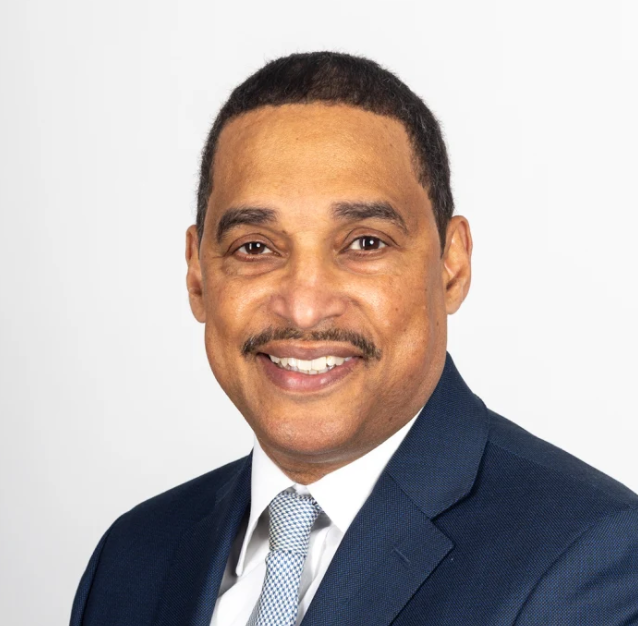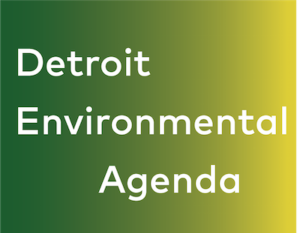Darryl Brown

Q: Where can people go to learn more about your biography? If not readily available online, please describe in 150 words or less, your relevant experience, public offices held (if any), involvement in environmental causes, and membership in any environmental organizations. If you currently hold office, describe any votes or actions demonstrating concern for the environment.
A: I was elected to serve as Police Commissioner in District 1 for the term of 2018 – 2022. I actively work for solutions with establishing policies, rules, and regulations to improve the process. I actively engage members in the community to effectuate needed change in our community policies.
Some facts about me include:
- Lifelong Detroiter
- Member of Macedonia Baptist Church since 1999
- Rosedale Park resident since 1998
- Served on the Rosedale Park Improvement Association Board of Directors
- Currently serving as a member of the Rosedale Park Radio Patrol
- Volunteer for the Isaiah Project
- Employed by DTE Energy
- Wayne County C.E.R.T. Reserve Deputy Sheriff
- Retired City of Detroit Firefighter
- Former IBEW Local 58 member
- Member of Jimmie Lunceford Lodge #45 F&AM PHA
- Member of Marracci Temple #13
- 13th Congressional District member
Community
Q: If elected, how will you work with Detroit residents to ensure that they benefit from and partake in the decision-making surrounding local development projects and that potential adverse impacts of those projects are identified, measured, monitored and mitigated? Moreover, how would you work to put more power into the hands of residents to maintain and revitalize their own communities and to access vacant land through the DLBA?
A: Power is always in the hands of the people and vested in those we choose to represent us. I will always have an open-door policy to hear the concerns of the community especially when development affects our quality of life. The DLBA, in my opinion, is the biggest contributor to blight in our communities. They are unregulated and not policed at all when it comes to maintaining vacant unsafe blighted structures. I want to work to dismantle the DLBA and create a power structure in each district working with the city to determine and govern vacant and blighted properties.
Q: If elected, what budget appropriations would you propose to increase investment in needed social and environmental services to help improve the quality of life and health of Detroit residents?
A: If elected, public safety will be one of my top priorities. Policing in the city is very important and more police does decrease crime when enforcement tactics and adequate manpower exist. Budgetary dollars can be used through government earmarking for community programs.
Public Health
Q: What long term solutions do you see for addressing vehicle speeds and making our streets safer?
A: Traffic enforcement plays a huge role in addressing vehicle speeds. New designs of streetscapes are great if we employ the people to enforce the laws they breach. Suburban communities know all too well the revenue generated from traffic enforcement. For example, rolling through a stop sign in Dearborn is a $100 fine. I watched an officer write 10 of those tickets in a few hours. Let’s do some math one officer writes a total of 50 tickets a week, that’s $5000 a week, $20,000 a month, that is $240,000 a year that one officer can generate through enforcement. Traffic cams work well in other cities when it comes to running red lights. Why not here? Either the behavior will change, or the city generates more revenue. As far as bike lanes and speed humps, they work well to slow traffic if engineered properly.
Q: How will you work to reduce the negative health impacts of air quality on the residents of Detroit?
A: I will work to write ordinances to reduce the number of businesses in our communities that contribute to poor air quality in District 1 and the city. Develop a plan with the DFD to inspect hazardous materials sites at these locations and charge a fee to have them.
Q: If elected, what actions will you take to work toward safer, healthier, and more affordable housing for all Detroiters?
A: Affordable housing is a crisis everywhere and we have watched how public housing establishments failed. Here is where I believe the community should play an important role in what low-income housing looks like? Where will they be located? When it comes to renovating old structures with environmental contaminants, I believe we must put ethical and qualified people in place to mitigate these issues or have the courage to demolish and rebuild.
Energy
Q: What are your priorities to reduce emissions and lessen the impacts of climate change in Detroit during your term in office?
A: The City has already implemented a Greenhouse Gas Ordinance and DTE has implemented 4 Solar sites within the City of Detroit generating megawatts. I will work to improve this ordinance to include all new structures that should include renewable energy systems in their plans. Also, I’d like to explore the use of underwater turbines for generation on the Detroit River.
Q: What are your plans for helping the city transition to renewable energy and how will you ensure that the cost benefits and increased resilience that come from the use of renewables is made accessible to low-income and vulnerable communities across Detroit?
A: I am researching affordable solar energy programs for those residents that want to participate with government funding. When residents generate onto the grid, they receive a credit from their utility company, therefore lowering the bills, while reducing our carbon footprint. In addition, I would like to have backup generation provided as well.
Recycling
Q: How can the city increase recycling, composting, and the use of post-consumer recycled materials, while addressing the city’s litter and illegal dumping problem?
A: The city can increase its recycling program through inclusion of all communities. We need to explore the cost of opening our own recycling center. Illegal dumping can be handled by removing blight through proper and continued maintenance of vacant properties, surveillance, stronger penalties and most of all community watch.
Jobs
Q: What steps would you take to prepare the local workforce to take advantage of and be part of the movement toward a green economy, through qualifying for good paying infrastructure and clean energy jobs, amongst others?
A: I would assure that Detroiters have adequate CBA’s defining where jobs and money will be allocated. Work with local unions to pave the way for apprenticeships in the skilled trades and create a community-based task force to head up clean energy usages and regulations.
Water
Q: How will you ensure that clean water is accessible and affordable to all Detroiters?
A: First, I believe we need to dismantle the Water Authority which is driving the cost up for Detroit residents. Assure that poor families and those living below the poverty wage can pay less but must volunteer their time to help offset the cost of doing business.
Q: How will you help municipal agencies and property owners integrate Green Stormwater Infrastructure (GSI) across the city to manage stormwater and reduce drainage charge fees for property owners?
A: I believe the water runoff charges are ridiculous and add to the rising cost of water affordability for Detroit residents. Although our system is old and outdated, we need to invest heavily in its infrastructure. Funding is available to do this and when new roads are built, we should begin separating wastewater from storm water runoff to help lessen the gallons of treated water, which can help to reduce cost.
Optional
Q: Please identify the top environmental concerns to you personally, identify the environmental issue in your community that is the most pressing, and what you would like to do as an elected official to address this most pressing concern.
A: Your questions seem to have covered it all except for the ongoing pollution in the Detroit River and we need to stop letting other states use the Great Lakes Region as their dumping ground. I would also like to work with our State leaders to press the conversation of stopping deep well injection sites here in Michigan and come up with environmentally sound practices to address litter, blight and dumping.
I supported the initial recycling program in the city. Other issues are hazardous materials storage and disposal, air quality and litter. I believe these are the top concerns in District 1, particularly in the Greenfield and Fullerton area. We don’t need any more used car lots that become havens for rodents amongst other issues they create.

